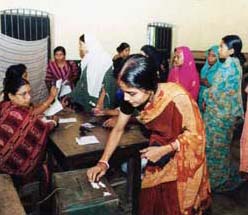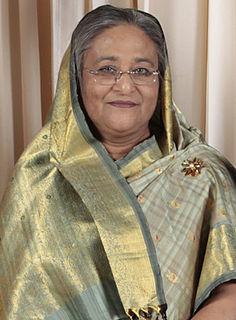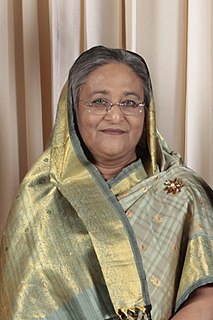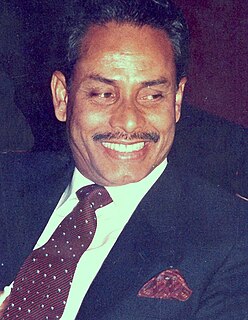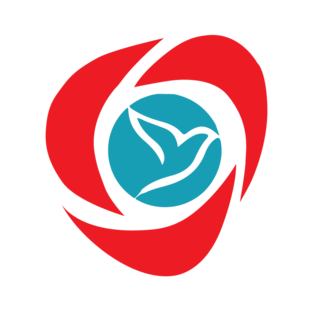| Sl. No. | Area | Parliamentarian | Party |
|---|
| 1 | Panchagarh-1 | Muhammad Jamiruddin Sircar | Bangladesh Nationalist Party |
| 2 | Panchagarh-2 | Mozahar Hussain | Bangladesh Nationalist Party |
| 3 | Thakurgaon-1 | Mirza Fakhrul Islam Alamgir | Bangladesh Nationalist Party |
| 4 | Thakurgaon-2 | Dabirul Islam | Bangladesh Awami League |
| 5 | Thakurgaon-3 | Hafiz Uddin Ahmed | Jatiya Party (Ershad) |
| 6 | Dinajpur-1 | Md. Ahdullah Al Kafi | Bangladesh Jamaat-e-Islami |
| 7 | Dinajpur-2 | Muhammad Mahbubur Rahman | Bangladesh Nationalist Party |
| 8 | Dinajpur-3 | Khurshid Jahan | Bangladesh Nationalist Party |
| 9 | Dinajpur-4 | Akhtaruzzaman Mia | Bangladesh Nationalist Party |
| 10 | Dinajpur-5 | Mostafizur Rahman | Bangladesh Nationalist Party |
| 11 | Dinajpur-6 | Mohammad Azizur Rahman Chowdhury | Bangladesh Jamaat-e-Islami |
| 12 | Nilphamari-1 | Dr. Hamida Banu Shova | Bangladesh Awami League |
| 13 | Nilphamari-2 | Asaduzzaman Noor | Bangladesh Awami League |
| 14 | Nilphamari-3 | Mizanur Rahman Chowdhury | Bangladesh Jamaat-e-Islami |
| 15 | Nilphamari-4 | Mohammad Amjad Hossain Sarkar | Bangladesh Nationalist Party |
| 16 | Lalmonirhat-1 | Motahar Hossain | Bangladesh Awami League |
| 17 | Lalmonirhat-2 | Mohammad Majibar Rahman | Jatiya Party (Ershad) |
| 18 | Lalmonirhat-3 | Asadul Habib (Dulu) | Bangladesh Nationalist Party |
| 19 | Rangpur-1 | Moshiur Rahman Ranga | Jatiya Party (Ershad) |
| 20 | Rangpur-2 | Mohammad Ali Sarkar | Jatiya Party (Ershad) |
| 21 | Rangpur-3 | Golam Muhammed Quader | Jatiya Party (Ershad) |
| 22 | Rangpur-4 | Alhaj Karim Uddin Bharsha | Jatiya Party (Ershad) |
| 23 | Rangpur-5 | Shah Soliman Alam | Jatiya Party (Ershad) |
| 24 | Rangpur-6 | Nur Mohammad Mondal | Jatiya Party (Ershad) |
| 25 | Kurigram-1 | A. K. M. Mostafizur Rahman | Jatiya Party (Ershad) |
| 26 | Kurigram-2 | Alhaj T.I. Choudhury | Jatiya Party (Ershad) |
| 27 | Kurigram-3 | Matiur Rahman | Jatiya Party (Ershad) |
| 28 | Kurigram-4 | Golam Habib (Dulal) | Jatiya Party (Ershad) |
| 29 | Gaibandha-1 | Mowlana Abdul Aziz | Bangladesh Jamaat-e-Islami |
| 30 | Gaibandha-2 | Lutfor Rahman | Bangladesh Awami League |
| 31 | Gaibandha-3 | T.I.M. Fazle Rabbi Chowdhury | Jatiya Party (Ershad) |
| 32 | Gaibandha-4 | Mohammad Shamim Kaiser | Bangladesh Nationalist Party |
| 33 | Gaibandha-5 | Rowshan Ershad | Jatiya Party (Ershad) |
| 34 | Joypurhat-1 | Abdul Alim | Bangladesh Nationalist Party |
| 35 | Joypurhat-2 | Abu Yusuf Khalilur Rahman | Bangladesh Nationalist Party |
| 36 | Bogra-1 | Kazi Rafiqul Islam | Bangladesh Nationalist Party |
| 37 | Bogra-2 | Rezaul Bari Dina | Bangladesh Nationalist Party |
| 38 | Bogra-3 | Abdul Momin Talukder | Bangladesh Nationalist Party |
| 39 | Bogra-4 | Ziaul Haque Mollah | Bangladesh Nationalist Party |
| 40 | Bogra-5 | Golam Sira | Bangladesh Nationalist Party |
| 41 | Bogra-6 | Khaleda Zia | Bangladesh Nationalist Party |
| 42 | Bogra-7 | Helaluzzaman Talukder Lalu | Bangladesh Nationalist Party |
| 43 | Nawabgonj-1 | Shahajahan Mia | Bangladesh Nationalist Party |
| 44 | Nawabgonj-2 | Syed Manzur Hossain | Bangladesh Nationalist Party |
| 45 | Nawabgonj-3 | Harunur Rashid | Bangladesh Nationalist Party |
| 46 | Naogaon-1 | Salek Chowdhury | Bangladesh Nationalist Party |
| 47 | Naogaon-2 | Shamsuzzoha Khan | Bangladesh Nationalist Party |
| 48 | Naogaon-3 | Akhtar Hamid Siddiqui | Bangladesh Nationalist Party |
| 49 | Naogaon-4 | Shamsul Alam Pramanik | Bangladesh Nationalist Party |
| 50 | Naogaon-5 | Abdul Jalil (politician) | Bangladesh Awami League |
| 51 | Naogaon-6 | Alamgir Kabir | Bangladesh Nationalist Party |
| 52 | Rajshahi-1 | Aminul Haq | Bangladesh Nationalist Party |
| 53 | Rajshahi-2 | Mizanur Rahman Minu | Bangladesh Nationalist Party |
| 54 | Rajshahi-3 | M.A. Hena | Bangladesh Nationalist Party |
| 55 | Rajshahi-4 | Nadim Mustafa | Bangladesh Nationalist Party |
| 56 | Rajshahi-5 | Kabir Hussain | Bangladesh Nationalist Party |
| 57 | Natore-1 | Fazlur Rahman Patal | Bangladesh Nationalist Party |
| 58 | Natore-2 | Ruhul Quddus Talukdar (Dulu) | Bangladesh Nationalist Party |
| 59 | Natore-3 | Quazi Golam Morshed | Bangladesh Nationalist Party |
| 60 | Natore-4 | Mozammel Haque | Bangladesh Nationalist Party |
| 61 | Sirajganj-1 | Mohammed Nasim | Bangladesh Awami League |
| 62 | Sirajganj-2 | Iqbal Hasan Mahmud | Bangladesh Nationalist Party |
| 63 | Sirajganj-3 | Abdul Mannan Talukdar | Bangladesh Nationalist Party |
| 64 | Sirajganj-4 | M. Akbar Ali | Bangladesh Nationalist Party |
| 65 | Sirajganj-5 | Justice M. M. Haque | Bangladesh Nationalist Party |
| 66 | Sirajganj-6 | Major Manzur Quader | Bangladesh Nationalist Party |
| 67 | Sirajganj-7 | Professor Mohammad Abdul Matin | Bangladesh Nationalist Party |
| 68 | Pabna-1 | Motiur Rahman Nizami | Bangladesh Jamaat-e-Islami |
| 69 | Pabna-2 | A.K.M. Selim Reza Habib | Bangladesh Nationalist Party |
| 70 | Pabna-3 | K.M. Anwarul Islam | Bangladesh Nationalist Party |
| 71 | Pabna-4 | Shamsur Rahman Sherif | Bangladesh Nationalist Party |
| 72 | Pabna-5 | Abdus Sobhan | Bangladesh Jamaat-e-Islami |
| 73 | Meherpur-1 | Masud Arun | Bangladesh Nationalist Party |
| 74 | Meherpur-2 | Mohammad Abdul Gani | Bangladesh Nationalist Party |
| 75 | Kushtia-1 | Reza Ahmed (Bachu) | Bangladesh Nationalist Party |
| 76 | Kushtia-2 | Professor Shahidul Islam | Bangladesh Nationalist Party |
| 77 | Kushtia-3 | Principal Alhaz Soharab Uddin | Bangladesh Nationalist Party |
| 78 | Kushtia-4 | Syed Mehdi Ahmed Rumi | Bangladesh Nationalist Party |
| 79 | Chuadanga-1 | Shahidul Islam Bishwas | Bangladesh Nationalist Party |
| 80 | Chuadanga-2 | Haji Muhammad Mozammel Haque | Bangladesh Nationalist Party |
| 81 | Jhenidah-1 | Abdul Hyee | Bangladesh Awami League |
| 82 | Jhenidah-2 | Mashiur Rahman | Bangladesh Nationalist Party |
| 83 | Jhenidah-3 | Shahidul Islam | Bangladesh Nationalist Party |
| 84 | Jhenidah-4 | Shahiudduzzaman Beltu | Bangladesh Nationalist Party |
| 85 | Jessore-1 | Alhaj Ali Quader | Bangladesh Nationalist Party |
| 86 | Jessore-2 | Abu Sayeed Shahadat Hussain | Bangladesh Jamaat-e-Islami |
| 87 | Jessore-3 | Tariqul Islam | Bangladesh Nationalist Party |
| 88 | Jessore-4 | M.M. Amin Uddin | Bangladesh Jatiya Party – BJP |
| 89 | Jessore-5 | Mufti Muhammad Waqqas | Islami Oikya Jote |
| 90 | Jessore-6 | A.S.H.K. Shadek | Bangladesh Awami League |
| 91 | Magura-1 | Prof. Muhammad Serajul Akbar | Bangladesh Awami League |
| 92 | Magura-2 | Qazi Saleemul Huq | Bangladesh Nationalist Party |
| 93 | Narail-1 | Dhirendra Nath Saha | Bangladesh Nationalist Party |
| 94 | Narail-2 | Mohammad Shahidul Islam | Bangladesh Jamaat-e-Islami |
| 95 | Bagerhat-1 | Sheikh Helal Uddin | Bangladesh Awami League |
| 96 | Bagerhat-2 | M.A.H. Salim | Bangladesh Nationalist Party |
| 97 | Bagerhat-3 | Talukder Abdul Khaleque | Bangladesh Awami League |
| 98 | Bagerhat-4 | Mufti Maulana Abdus Sattar Akon | Bangladesh Jamaat-e-Islami |
| 99 | Khulna-1 | Panchanan Biswas | Bangladesh Awami League |
| 100 | Khulna-2 | Mohammad Ali Asghar | Bangladesh Nationalist Party |
| 101 | Khulna-3 | Ashraf Hossain | Bangladesh Nationalist Party |
| 102 | Khulna-4 | M. Nurul Islam | Bangladesh Nationalist Party |
| 103 | Khulna-5 | Mia Golam Porwar | Bangladesh Jamaat-e-Islami |
| 104 | Khulna-6 | Shah Ruhul Quddus | Bangladesh Jamaat-e-Islami |
| 105 | Shatkhira-1 | Habibul Islam Habib | Bangladesh Nationalist Party |
| 106 | Shatkhira-2 | Maulana Abdul Khaleque | Bangladesh Jamaat-e-Islami |
| 107 | Shatkhira-3 | A.M. Reasat Ali Biswas | Bangladesh Jamaat-e-Islami |
| 108 | Shatkhira-4 | Kazi Alauddin | Bangladesh Jatiya Party – BJP |
| 109 | Shatkhira-5 | Gazi Nazrul Islam | Bangladesh Jamaat-e-Islami |
| 110 | Barguna-1 | Delwar Hossain | Independent |
| 111 | Barguna-2 | Alhaj Nurul Islam Moni | Bangladesh Nationalist Party |
| 112 | Barguna-3 | M. Motiur Rahman Talukdar | Bangladesh Nationalist Party |
| 113 | Patuakhali-1 | Air Vice Marshal (retd.) Altaf Hossain Chowdhury | Bangladesh Nationalist Party |
| 114 | Patuakhali-2 | Shahidul Alam Talukdar | Bangladesh Nationalist Party |
| 115 | Patuakhali-3 | A.K.M. Jahangir Hossain | Bangladesh Awami League |
| 116 | Patuakhali-4 | Alhaj Mahbubur Rahman | Bangladesh Awami League |
| 117 | Bhola-1 | Mosharraf Hussain Shahjahan | Bangladesh Nationalist Party |
| 118 | Bhola-2 | Hafiz Ibrahim | Bangladesh Nationalist Party |
| 119 | Bhola-3 | Hafizuddin Ahmed | Bangladesh Nationalist Party |
| 120 | Bhola-4 | Nazimuddin Alam | Bangladesh Nationalist Party |
| 121 | Barisal-1 | Zahiruddin Swapan | Bangladesh Nationalist Party |
| 122 | Barisal-2 | Moazzem Hussain Alal | Bangladesh Nationalist Party |
| 123 | Barisal-3 | Mosharraf Hussain Mongu | Bangladesh Nationalist Party |
| 124 | Barisal-4 | Shah M. Abul Hussain | Bangladesh Nationalist Party |
| 125 | Barisal-5 | Mujibur Rahman Sarwar | Bangladesh Nationalist Party |
| 126 | Barisal-6 | Abul Hussain Khan | Bangladesh Nationalist Party |
| 127 | Jhalakathi-1 | Shahjahan Omar | Bangladesh Nationalist Party |
| 128 | Jhalakathi-2 | Israt Sultana Ellen Bhutto | Bangladesh Nationalist Party |
| 129 | Pirojpur-1 | Delwar Hossain Sayeedi | Bangladesh Jamaat-e-Islami |
| 130 | Pirojpur-2 | Anwar Hossain Manju | Jatiya Party (Manju) |
| 131 | Pirojpur-3 | Rustum Ali Faraji | Bangladesh Nationalist Party |
| 132 | Pirojpur-4 | Syed Shahidul Huque Jamal | Bangladesh Nationalist Party |
| 133 | Tangail-1 | Mohammad Abdur Razzaque | Bangladesh Awami League |
| 134 | Tangail-2 | Abdus Salam Pintu | Bangladesh Nationalist Party |
| 135 | Tangail-3 | Lutfor Rahman Khan (Azad) | Bangladesh Nationalist Party |
| 136 | Tangail-4 | Shajahan Siraj | Bangladesh Nationalist Party |
| 137 | Tangail-5 | Major Gen. Mahmudul Hasan | Bangladesh Nationalist Party |
| 138 | Tangail-6 | Gautam Chakrabarty | Bangladesh Nationalist Party |
| 139 | Tangail-7 | Akbar Hossain | Bangladesh Awami League |
| 140 | Tangail-8 | Kader Siddique | Krishak Sramik Janata League |
| 141 | Jamalpur-1 | Rashiduzzaman Millat | Bangladesh Nationalist Party |
| 142 | Jamalpur-2 | Sultan Mahmud Babu | Bangladesh Nationalist Party |
| 143 | Jamalpur-3 | Mirza Azam | Bangladesh Awami League |
| 144 | Jamalpur-4 | Anwarul Kabir Talukdar | Bangladesh Nationalist Party |
| 145 | Jamalpur-5 | Rezaul Karim Hira | Bangladesh Awami League |
| 146 | Sherpur-1 | Atiur Rahman Atique | Bangladesh Awami League |
| 147 | Sherpur-2 | Jahed Ali Chowdhury | Bangladesh Nationalist Party |
| 148 | Sherpur-3 | Mahmudul Haque (Rubel) | Bangladesh Nationalist Party |
| 149 | Mymensingh-1 | Promode Mankin | Bangladesh Awami League |
| 150 | Mymensingh-2 | Shah Shahid Sarwar | Bangladesh Nationalist Party |
| 151 | Mymensingh-3 | Mujibur Rahman Fakir | Bangladesh Awami League |
| 152 | Mymensingh-4 | Delwar Hossain Khan (Dulu) | Bangladesh Nationalist Party |
| 153 | Mymensingh-5 | A.K.M Mosharraf Hossain | Bangladesh Nationalist Party |
| 154 | Mymensingh-6 | Engr. Shamsuddin Ahmad | Independent |
| 155 | Mymensingh-7 | Abdul Matin Sarkar | Bangladesh Awami League |
| 156 | Mymensingh-8 | Shah Nurul Kabir (Shahin) | Bangladesh Nationalist Party |
| 157 | Mymensingh-9 | Khurrum Khan Choudhury | Bangladesh Nationalist Party |
| 158 | Mymensingh-10 | Altaf Hussain Gulandaz | Bangladesh Awami League |
| 159 | Mymensingh-11 | Professor Dr. M. Amanullah | Bangladesh Awami League |
| 160 | Mymensingh with Netrokona | Alhaj Dr. Muhammad Ali | Bangladesh Nationalist Party |
| 161 | Netrokona-1 | Abdul Karim Abbasi | Bangladesh Nationalist Party |
| 162 | Netrokona-2 | Haji Md. Abu Abbas | Bangladesh Nationalist Party |
| 163 | Netrokona-3 | Khadija Amin | Bangladesh Nationalist Party |
| 164 | Netrokona-4 | Lutfozzaman Babar | Bangladesh Nationalist Party |
| 165 | Kishoreganj-1 | Alauddin Ahmmed | Bangladesh Awami League |
| 166 | Kishoreganj-2 | Alhaj Professor Md. Abdul Mannan | Bangladesh Awami League |
| 167 | Kishoreganj-3 | Syed Ashraful Islam | Bangladesh Awami League |
| 168 | Kishoreganj-4 | Osman Faruk | Bangladesh Nationalist Party |
| 169 | Kishoreganj-5 | Abdul Hamid (politician) | Bangladesh Awami League |
| 170 | Kishoreganj-6 | Mujibur Rahman Manju | Bangladesh Nationalist Party |
| 171 | Kishoreganj-7 | Zillur Rahman | Bangladesh Awami League |
| 172 | Manikganj-1 | Khandaker Delwar Hossain | Bangladesh Nationalist Party |
| 173 | Manikganj-2 | Shamsuddin Ahmed | Independent |
| 174 | Manikganj-3 | Harunar Rashid Khan Munno | Bangladesh Nationalist Party |
| 175 | Manikganj-4 | Moinul Islam Khan | Bangladesh Nationalist Party |
| 176 | Munshiganj-1 | Mahi B. Chowdhury | Bangladesh Nationalist Party |
| 177 | Munshiganj-2 | Mizanur Rahman Sinha | Bangladesh Nationalist Party |
| 178 | Munshiganj-3 | M. Shamsul Islam | Bangladesh Nationalist Party |
| 179 | Munshiganj-4 | Abdul Haye | Bangladesh Nationalist Party |
| 180 | Dhaka-1 | Nazmul Huda | Bangladesh Nationalist Party |
| 181 | Dhaka-2 | Abdul Mannan | Bangladesh Nationalist Party |
| 182 | Dhaka-3 | Amanullah Aman | Bangladesh Nationalist Party |
| 183 | Dhaka-4 | Salahuddin Ahmed | Bangladesh Nationalist Party |
| 184 | Dhaka-5 | Major Kamrul Islam | Bangladesh Nationalist Party |
| 185 | Dhaka-6 | Mirza Abbas | Bangladesh Nationalist Party |
| 186 | Dhaka-7 | Sadeque Hossain Khoka | Bangladesh Nationalist Party |
| 187 | Dhaka-8 | Nasiruddin Ahmed Pintu | Bangladesh Nationalist Party |
| 188 | Dhaka-9 | Khandokar Mahbub Uddin Ahmed | Bangladesh Nationalist Party |
| 189 | Dhaka-10 | Mosaddek Ali Falu | Bangladesh Nationalist Party |
| 190 | Dhaka-11 | S.A. Khaleque | Bangladesh Nationalist Party |
| 191 | Dhaka-12 | Dewan Mohammod Salahuddin | Bangladesh Nationalist Party |
| 192 | Dhaka-13 | Ziaur Rahman Khan | Bangladesh Nationalist Party |
| 193 | Gazipur-1 | Alhaj Md. Rahmat Ali | Bangladesh Awami League |
| 194 | Gazipur-2 | Jahid Ahsan Russel | Bangladesh Awami League |
| 195 | Gazipur-3 | A.K.M. Fazlul Haque | Bangladesh Nationalist Party |
| 196 | Gazipur-4 | Tanjim Ahmad Sohel Taj | Bangladesh Awami League |
| 197 | Narsingdi-1 | Khairul Kabir Khokon | Bangladesh Nationalist Party |
| 198 | Narsingdi-2 | Abdul Moyeen Khan | Bangladesh Nationalist Party |
| 199 | Narsingdi-3 | Abdul Mannan Bhuiyan | Bangladesh Nationalist Party |
| 200 | Narsingdi-4 | Sardar Shakhawat Hussain Bokul | Bangladesh Nationalist Party |
| 201 | Narsingdi-5 | Rajiuddin Ahmed Raju | Bangladesh Awami League |
| 202 | Narayanganj-1 | Abdul Matin Chowdhury | Bangladesh Nationalist Party |
| 203 | Narayanganj-2 | Ataur Rahman Khan Angur | Bangladesh Nationalist Party |
| 204 | Narayanganj-3 | Rezaul Karim | Bangladesh Nationalist Party |
| 205 | Narayanganj-4 | Alhaj Mohammad Giasuddin | Bangladesh Nationalist Party |
| 206 | Narayanganj-5 | Advocate Abul Kalam | Bangladesh Nationalist Party |
| 207 | Rajbari-1 | Ali Newaz Mahmood | Bangladesh Nationalist Party |
| 208 | Rajbari-2 | Nasirul Haque Sabu | Bangladesh Nationalist Party |
| 209 | Faridpur-1 | Shah Muhammad Abu Zafar | Bangladesh Nationalist Party |
| 210 | Faridpur-2 | KM Obaidur Rahman | Bangladesh Nationalist Party |
| 211 | Faridpur-3 | Chowdhury Kamal Ibne Yusuf | Bangladesh Nationalist Party |
| 212 | Faridpur-4 | Chowdhury Akmal Ibne Yusuf | Bangladesh Nationalist Party |
| 213 | Faridpur-5 | Kazi Zafar Ullah | Bangladesh Awami League |
| 214 | Gopalganj-1 | Faruk Khan | Bangladesh Awami League |
| 215 | Gopalganj-2 | Sheikh Fazlul Karim | Bangladesh Awami League |
| 216 | Gopalganj-3 | Sheikh Hasina | Bangladesh Awami League |
| 217 | Madaripur-1 | Noor-e-Alam Chowdhury (Liton) | Bangladesh Awami League |
| 218 | Madaripur-2 | Shajahan Khan | Bangladesh Awami League |
| 219 | Madaripur-3 | Syed Abul Hossain | Bangladesh Awami League |
| 220 | Shariatpur-1 | K.M. Hemayet Ullah Auranga | Independent |
| 221 | Shariatpur-2 | Shawkat Ali | Bangladesh Awami League |
| 222 | Shariatpur-3 | Abdur Razzaq | Bangladesh Awami League |
| 223 | Sunamganj-1 | Nazir Hussain | Bangladesh Nationalist Party |
| 224 | Sunamganj-2 | Suranjit Sengupta | Bangladesh Awami League |
| 225 | Sunamganj-3 | Alhaj Md. Shahinoor Pasha Chowdhury | Bangladesh Nationalist Party |
| 226 | Sunamganj-4 | Fazlul Haque Aspia | Bangladesh Nationalist Party |
| 227 | Sunamganj-5 | Kalimuddin Ahmed | Bangladesh Nationalist Party |
| 228 | Sylhet-1 | Saifur Rahman | Bangladesh Nationalist Party |
| 229 | Sylhet-2 | Ilias Ali | Bangladesh Nationalist Party |
| 230 | Sylhet-3 | Shafi Ahmed Chowdhury | Bangladesh Nationalist Party |
| 231 | Sylhet-4 | Dildar Hossain Selim | Bangladesh Nationalist Party |
| 232 | Sylhet-5 | Farid Uddin Chowdhury | Bangladesh Jamaat-e-Islami |
| 233 | Sylhet-6 | Syed Mokbul Hossain | Independent |
| 234 | Moulvibazar-1 | Ebadur Rahman Chowdhury | Bangladesh Nationalist Party |
| 235 | Moulvibazar-2 | M.M. Shaheen | Independent |
| 236 | Moulvibazar-3 | M. Nasser Rahman | Bangladesh Nationalist Party |
| 237 | Moulvibazar-4 | Abdus Shahid | Bangladesh Awami League |
| 238 | Habiganj-1 | Dewan Farid Gazi | Bangladesh Awami League |
| 239 | Habiganj-2 | Najmul Hasan Zahed | Bangladesh Awami League |
| 240 | Habiganj-3 | Abu Lais Md. Mobin Chowdhury | Bangladesh Awami League |
| 241 | Habiganj-4 | Enamul Haque | Bangladesh Awami League |
| 242 | Brahmanbaria-1 | Muhammad Syedul Haque | Bangladesh Awami League |
| 243 | Brahmanbaria-2 | Mufti Fazlul Haque Amini | Islami Oikya Jote |
| 244 | Brahmanbaria-3 | Harun al-Rashid | Bangladesh Nationalist Party |
| 245 | Brahmanbaria-4 | Mushfiqur Rahman | Bangladesh Nationalist Party |
| 246 | Brahmanbaria-5 | Kazi Md. Anwar Hossain | Bangladesh Nationalist Party |
| 247 | Brahmanbaria-6 | Abdul Khaleque | Bangladesh Nationalist Party |
| 248 | Comilla-1 | M. K. Anwar | Bangladesh Nationalist Party |
| 249 | Comilla-2 | Khandaker Mosharraf Hossain | Bangladesh Nationalist Party |
| 250 | Comilla-3 | Kazi Shah Mofazzal Hossain (Kaikobad) | Bangladesh Nationalist Party |
| 251 | Comilla-4 | Alhaj Eng. Manzurul Ahsan Munsh | Bangladesh Nationalist Party |
| 252 | Comilla-5 | Muhammad Yunus | Bangladesh Nationalist Party |
| 253 | Comilla-6 | Redwan Ahmed | Bangladesh Nationalist Party |
| 254 | Comilla-7 | Zakaria Taher | Bangladesh Nationalist Party |
| 255 | Comilla-8 | lieutenant colonel. (retd.) Akbar Hossain | Bangladesh Nationalist Party |
| 256 | Comilla-9 | Monirul Hoque Chowdhury | Bangladesh Nationalist Party |
| 257 | Comilla-10 | Col. M. Anwarul Azim | Bangladesh Nationalist Party |
| 258 | Comilla-11 | Abdul Gaffur Bhuiyan | Bangladesh Nationalist Party |
| 259 | Comilla-12 | Dr. S.A.M. Taher | Bangladesh Jamaat-e-Islami |
| 260 | Chandpur-1 | A.N.M. Ehsanul Hoque Milan | Bangladesh Nationalist Party |
| 261 | Chandpur-2 | Nurul Huda | Bangladesh Nationalist Party |
| 262 | Chandpur-3 | G.M. Fazlul Hoque | Bangladesh Nationalist Party |
| 263 | Chandpur-4 | S.A. Sultan | Bangladesh Nationalist Party |
| 264 | Chandpur-5 | M. A. Matin | Bangladesh Nationalist Party |
| 265 | Chandpur-6 | Alamgir Hyder Khan | Bangladesh Nationalist Party |
| 266 | Feni-1 | Sayeed Iskander | Bangladesh Nationalist Party |
| 267 | Feni-2 | Joynal Abdin | Bangladesh Nationalist Party |
| 268 | Feni-3 | Muhammad Mosharraf Hossain | Bangladesh Nationalist Party |
| 269 | Noakhali-1 | Joynal Abedin Faruk | Bangladesh Nationalist Party |
| 270 | Noakhali-2 | M.A Hashem | Bangladesh Nationalist Party |
| 271 | Noakhali-3 | Mahbubur Rahman | Bangladesh Nationalist Party |
| 272 | Noakhali-4 | Md. Shahjahan | Bangladesh Nationalist Party |
| 273 | Noakhali-5 | Moudud Ahmed | Bangladesh Nationalist Party |
| 274 | Noakhali-6 | Mohammad Ali | Independent |
| 275 | Laxmipur-1 | Ziaul Haque Zia | Bangladesh Nationalist Party |
| 276 | Laxmipur-2 | Abul Khair Bhuiyan | Bangladesh Nationalist Party |
| 277 | Laxmipur-3 | Shahiduddin Chowdhury Annie | Bangladesh Nationalist Party |
| 278 | Laxmipur-4 | A.B.M. Ashraf Uddin | Bangladesh Nationalist Party |
| 279 | Chittagong-1 | M. A. Jinnah | Bangladesh Nationalist Party |
| 280 | Chittagong-2 | L. K. Siddiqui | Bangladesh Nationalist Party |
| 281 | Chittagong-3 | Mustafa Kamal Pasha | Bangladesh Nationalist Party |
| 282 | Chittagong-4 | Rafiqul Anwar | Bangladesh Awami League |
| 283 | Chittagong-5 | Alhaj Syed Wahidul Alam | Bangladesh Nationalist Party |
| 284 | Chittagong-6 | A.B.M. Fazle Karim Chowdhury | Bangladesh Awami League |
| 285 | Chittagong-7 | Salahuddin Quader Chowdhury | Bangladesh Nationalist Party |
| 286 | Chittagong-8 | Amir Khasru Mahmud Chowdhury | Bangladesh Nationalist Party |
| 287 | Chittagong-9 | Abdullah Al Noman | Bangladesh Nationalist Party |
| 288 | Chittagong-10 | Morshed Khan | Bangladesh Nationalist Party |
| 289 | Chittagong-11 | Gazi Mohammed Shahjahan | Bangladesh Nationalist Party |
| 290 | Chittagong-12 | Sarwar Jamal Nizam | Bangladesh Nationalist Party |
| 291 | Chittagong-13 | Oli Ahmad | Bangladesh Nationalist Party |
| 292 | Chittagong-14 | Shahjahan Chowdhury | Bangladesh Nationalist Party |
| 293 | Chittagong-15 | Jafrul Islam Chowdhury | Bangladesh Nationalist Party |
| 294 | Cox's Bazar-1 | Salahuddin Ahmad | Bangladesh Nationalist Party |
| 295 | Cox's Bazar-2 | Alamgir Muhammad Mahfuzullah Farid | Bangladesh Nationalist Party |
| 296 | Cox's Bazar-3 | Mohammed Shahiduzzaman | Bangladesh Nationalist Party |
| 297 | Cox's Bazar-4 | Shahjahan Chowdhury | Bangladesh Nationalist Party |
| 298 | Hill Khagrachari | Wadud Bhuiyan | Bangladesh Nationalist Party |
| 299 | Hill Rangamati | Moni Swapan Dewan | Bangladesh Nationalist Party |
| 300 | Hill Bandarban | Bir Bahadur | Bangladesh Awami League |

















